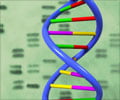A new collaborative study by scientists at Children's Hospital Boston and the Dana Farber Cancer Institute (DFCI), Broad Institute of MIT and Harvard, has cited the discovery of five
At least five gene variants that could potentially be helpful in predicting sickle cell disease severity have been identified in a new collaborative study by scientists at Children's Hospital Boston and the Dana Farber Cancer Institute (DFCI), Broad Institute of MIT and Harvard.
While sickle cell disease is a single-gene disorder, its symptoms are highly variable and this latest feat may even lead to better treatment approaches in the future.The scientists highlighted that the gene variants influence blood levels of fetal haemoglobin (HbF), which are known to affect symptom severity in sickle cell disease, which may cause some patients to experience frequent, severe pain crises and organ damage, while others are scarcely aware of their disease.
"Our study is a first step towards a better understanding of foetal haemoglobin regulation in patients with sickle cell disease. But further validation experiments are needed before these findings can become useful in the clinic," said Guillaume Lettre, PhD, of the Broad Institute and Children's Hospital Boston, and co-first author on the paper.
"Eventually, understanding the factors giving rise to heterogeneity in HbF levels might allow us to take severely affected patients and make them more like those with more benign symptoms," added Vijay Sankaran, co-first author on the paper with Lettre and an MD-PhD student in the laboratory of Stuart Orkin, MD.
In sickle cell disease, a single genetic mutation results in the production of an abnormal type of haemoglobin molecules that tend to form long chains, causing red blood cells to become stiff and sickle-shaped. The distorted cells have difficulty passing through blood vessels and can block the smaller vessels, resulting in severe pain and eventual organ damage as tissues are robbed of their blood supply. The sickle-shaped red blood cells also have a very short lifespan, causing patients to be chronically anaemic.
In earlier studies it was found that by retaining high levels of another type of hemoglobin-HbF, found at high levels in the foetus-it is possible to improve sickle cell disease symptoms.
"The more you have, the better off you are," said Sankaran.
After adding these five variants to a model previously designed by Platt to predict disease severity, which also factors in age, sex, degree of anaemia and HbF levels, the model's predictive ability was enhanced.
While the results need to be validated in large, prospective clinical studies, the researchers are hopeful about the possible future clinical implications of their work.
"As we find gene variants that regulate HbF levels or predict severity, we might eventually want to genotype patients for these variants, to get more predictive information on their disease," said Sankaran.
And when the study will finally be validated, the knowledge of how these variants actually affect HbF levels might someday lead to new drugs that do the same thing.
"If we can gain better insight into what these variants are doing, we may eventually have better, more targeted therapies for sickle cell disease," added Sankaran.
The study was published online by the Proceedings of the National Academy of Sciences.
Source-ANI
RAS/L
 MEDINDIA
MEDINDIA



 Email
Email





